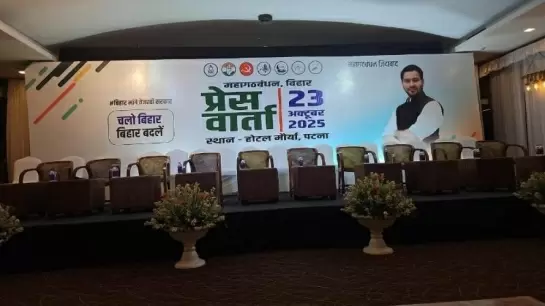Data colonisation the new looming danger
27-June-2019
First there was military colonisation and then energy colonisation. Now, there looms the phenomenon of data colonisation. As Prime Minister Narendra Modi put it at Davos earlier this year: "Today, data is a real wealth and it is being said that whoever acquires and controls the data will have hegemony in the future. The global flow of data is creating big opportunities as well as challenges."
Until the turn of the 21st century, data used to be in megabytes (MB) and gigabytes (GB). Now, with the advent of the digital era, this data is measured in zettabytes (ZB), equivalent to 1 trillion gigabytes.
"Storage of such large-scale data is one of the biggest challenges. The concept of storage of data through cloud has given rise to the concept of cross-border storage in Data Centres located beyond our geographical boundaries and out of our legal jurisdiction," says a new book, "Data Sovereignty - The Pursuit of Supremacy" (Penman Books/pp 257/Rs 599).
"A few years ago, this was not looked at as a threat but today, with the growing importance of data in the growing economy, the concept of storage data within the local boundaries has taken significance," says the book, helmed by Vinit Goenka, a Governing Council member of the Centre for Railway Information Systems and former National Co-Convenor of the BJP's IT Cell and former Staffing Partner, IBM.
On Tuesday, Commerce Minister Piyush Goyal announced that data localisation norms had been kept out of the final e-commerce policy draft, leaving the issue to the Electronics and Information Technology (MeitY) Ministry that is working on a data protection bill.
The book is the outcome of four years of interactions between Goenka, four retired Lieutenant Generals - V.M. Patil, D.B. Shekatkar, Vinod Bhatia and Vinod Khandare - former Additional Sectretary (RAW) Jayadeva Ranade and Bharat Panchal, SVP and Head (Risk Management) at National Payments Corporation of India.
Thus, addressing concerns over Data Privacy and Data Protection "is the need of the hour" as Data Colonisation looms.
"Unlike the other colonisation whose primary purpose is economical, at its worst, Data Colonisation could lead to the enslavement of mind, body and soul of the affected people. Loss of identity, loss of privacy and an increase in cyber crimes are few of the issues that would be the result of this," the book says, as it explains through eight chapters and 19 previously published articles - for instance, "Data Localisation: A strategic weapon in cyber war" and four annexures the task at hand.
And, in view of the recent fiasco linked to Cambridge Analytica and the speculated presence of the Russian hand in the last US presidential elections - an area that still remains opaque even after Special Counsel Robert Mueller submitted his report - "is any of our industry safe", the book asks.
"The ongoing terrorist threats from Pakistan and its allied terror groups and with the transformations in Pakistan's political landscape, it is all the more vital that extra vigilant procedures are required to maintain the sovereignty of the Indian industry database
How then does India go about its task? By focusing on four areas: Regulatory and Policy, Business, Infrastructure and Technical.
Within these are the various sub-areas: taxation policy, data protection and privacy and data encryption in the first; capex vs opex and data analytics in the second; land water and power, and disaster avoidance in the third; and broadband, bandwidth cost and quality and green technology in the fourth.
"The enforcement of strong privacy, security and surveillance rules and regulations with respect to data centres in India is required. India should also review its laws and lead the world in setting out rules for the protection of data for all its citizens. India should create a supportive ecosystem for the business by providing specific business zones with all amenities and special tax rebates to boost investor interest in India," the book says.
And, since the government these days "is emphasising largely on digital mode, whether it's payments, education of governance, it should also emphasise on creating Data Centres that would stand as the focal points for the enhancements in technology", the book maintains. IANS
IndiGo Flight from Kolkata to Srinagar Makes Emergency Landing in Varanasi
Saudi Arabia Ends Kafala Sponsorship System, Benefiting 13 Million Foreign Workers
Satya Nadella’s Pay Soars to $96.5 Million in FY25 as Microsoft’s AI Boom Lifts Profits
Dalit Youth Abducted, Assaulted, and Forced to Drink Urine in Madhya Pradesh’s Bhind
CM Vijayan Faces Protest During Kozhikode Market Inauguration, Slams Oppn









